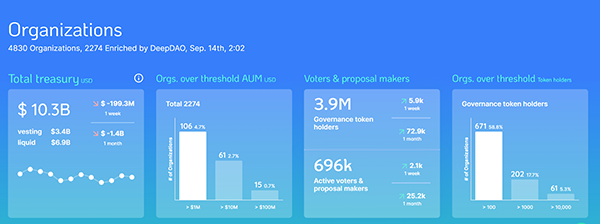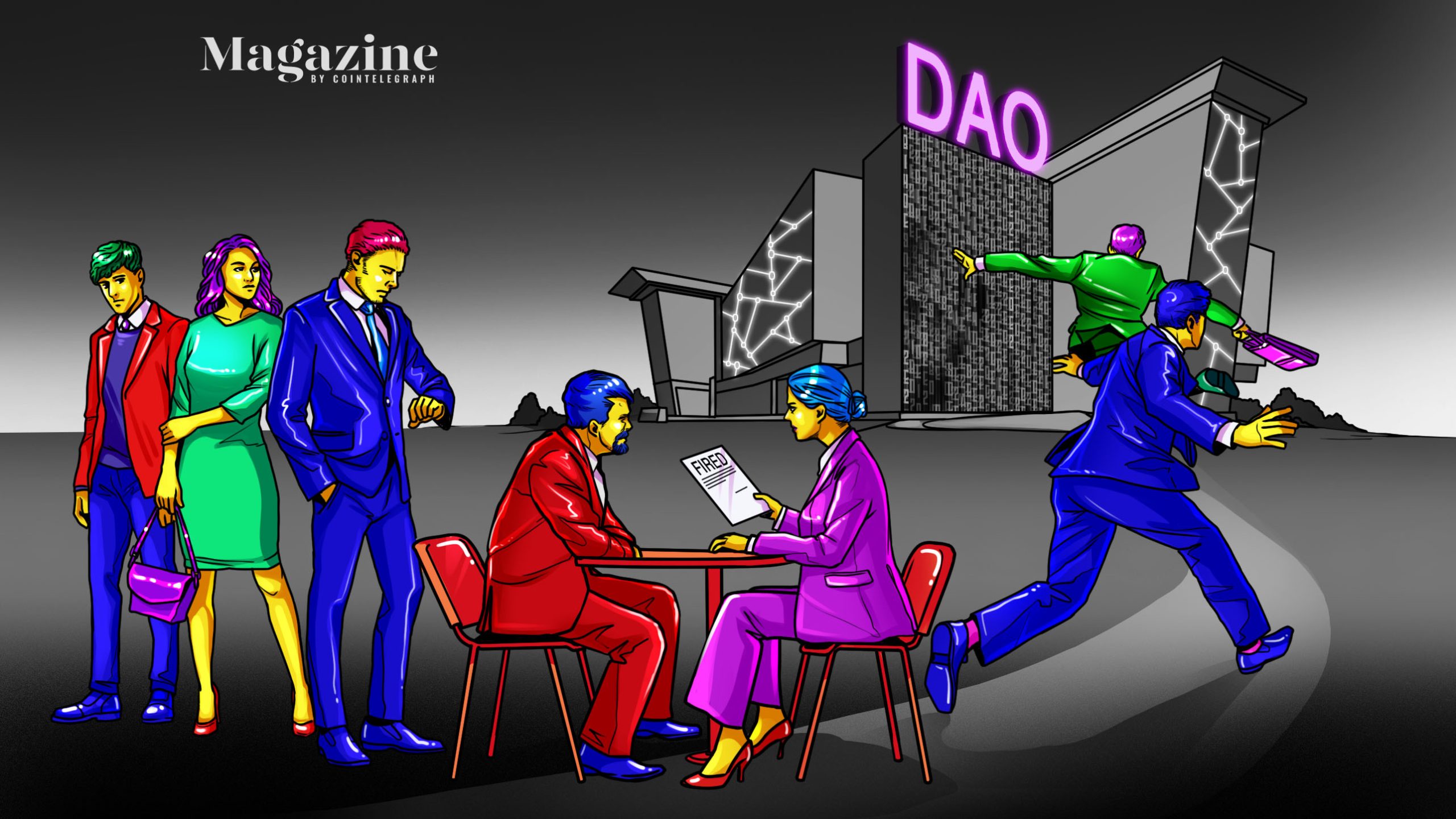Increasing numbers of employees are quitting 9–5 corporate jobs to work for DAOs. While the money’s great, DAOs fall into a legal gray area, and it ca
Increasing numbers of employees are quitting 9–5 corporate jobs to work for DAOs. While the money’s great, DAOs fall into a legal gray area, and it can be tricky to get your foot in the door.
Researchers Nataliya Ilyushina and Trent MacDonald from the Royal Melbourne Institute of Technology Blockchain Innovation Hub take you through how to get started.
This year could see two emerging workforce dynamics come to a head. Twenty-one million Americans quit their jobs in 2021 — heralding the “Great Resignation” era — after an extended experience working remotely during COVID-19 lockdowns and dissatisfaction with conditions upon reentering their workplaces.
One in 5 workers reported an intent to quit their jobs in 2022. At the same time, the peak number of members of decentralized autonomous organizations at the start of August 2022 was 3.4 million, with over 140,000 new members joining in July 2022 alone.
Although the “Little Migration” to DAOs pales in comparison to the Great Resignation, we might still wonder if these two trends are connected in some small way.
For one, the demographics of both groups are strikingly similar: workers typically between 30 and 45 years old and with the tech industry most affected. Secondly, DAOs are digitally native organizations and a natural fit for many of the disaffected workers seeking new remote employment opportunities.
So, why are people migrating from working in traditional corporations to become digital nomads working in new settings such as DAOs? Could this be your next career move?

Decentralized alternative
DAOs are a new form of organizational structure offering an alternative to corporations. For workers, the critical difference is the horizontal structure, where there is little formal hierarchy and no bosses.
DAOs offer a revolutionary new type of employment: a hybrid of ownership, traditional employment, freelancing and volunteering. Every member is a boss and a worker (both paid and unpaid) and is free to contribute when and where they see fit. Each member is free to choose how much time they want to spend working, voting and participating in discussions. Moreover, one can be a member of multiple DAOs and choose how much time and effort they devote to each.
According to DeepDAO, numerous top DAO contributors are members of dozens of DAOs at once, with the most prolific contributor currently part of more than 80 DAOs. In other words, employment in a DAO is flexible, discretionary, overlapping and deregulated.

DAO employment offers considerable worker flexibility — in terms of their overall supply of labor, working hours and variety of tasks — due to the digital, remote and asynchronous nature of DAO operations.
Today, it is possible to earn a living working for a DAO or across multiple DAOs, with some earning as much as $300,000 a year in 2021. A survey of 422 DAO members conducted by Gitcoin and Bankless showed that half of the respondents were able to earn a living from working in one or more DAOs.

A long road to be paid
However, the remuneration rarely comes as a traditional salary and is commonly paid in tokens. Furthermore, the moment one starts working for a DAO and the moment they get paid can be two entirely different points in time.
Here is how the evolution of working for a DAO typically looks. The moment one joins a DAO (usually by purchasing a token), they can start contributing by participating in a community forum (often on Discord) and voting (using Snapshot or something similar). At this point, however, there is a slim chance of getting paid. As one’s reputation grows, the DAO community may reward them based on discussion and participation KPIs (usually via airdrops).
Once a member has familiarised themself with the DAO and proved their reputation, they might start contributing to the core DAO project. At this stage, this usually happens in the form of completing a bounty: a small, disconnected task. Bounties are paid and lead to further accumulation of reputation and DAO-specific skills.
Not everyone is skilled to work for a #DAO… 😮 right now.
A DAO in its current form requires skills not everyone possesses, and that’s ok. 🤓
A lot of ideas are still getting tested, and there won’t be one single way to work in a DAO there will be many.
— ivanlozada.eth 🔥 _⚙️ (@ivan7538) September 6, 2022
The next step is to secure a part-time or full-time position within a DAO. While relatively rare and hard to get, these jobs are very well-paid. Longer-term or ongoing positions such as these are usually associated with the core operations of the DAO project: for example, a software developer role in a protocol DAO or a graphic designer role in an NFT art production DAO. If one does not want to have…
cointelegraph.com
